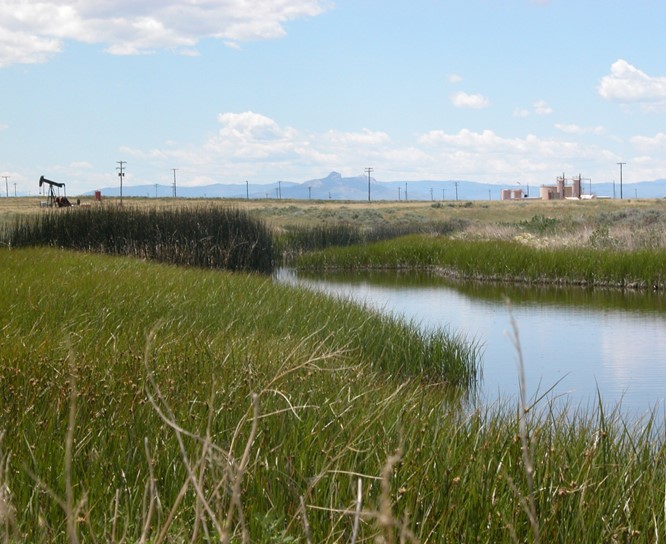Advanced Remediation Technologies
The Advanced Remediation Technologies Program portfolio carries out research that supports the development of technologies associated with subsurface energy resources and technologies to maximize and optimize production and use of fossil energy resources, primarily oil and natural gas. The program currently focuses on the following three areas.
 Environmentally Prudent Stewardship (EPS)
Environmentally Prudent Stewardship (EPS)
Oil and natural gas resource development will continue to be an important factor in securing energy dominance for the U.S. in the foreseeable future. Research in this area is directed toward finding ways to reduce the technical and economic challenges and risks associated with exploration, drilling, and completion of well operations. Research efforts include creating innovative technical solutions for reliable, responsible subsurface energy recovery and utilizing field test sites where new technologies can be evaluated at large scales and data can be collected for scientific and engineering analysis.
 Water Management Technologies (WMT)
Water Management Technologies (WMT)
The U.S. Department of Energy and NETL aim to ensure that American water is affordable, reliable and resilient for energy and beneficial use. The WMT mission is to support technologies for reliable fossil energy production and use with a focus on minimizing freshwater usage and enabling the beneficial use of water from oil and natural gas production operations and other fossil energy resources. The program works to characterize, treat, and reduce the volume of produced water extracted from and subsequently disposed of during oil and natural gas production operations through innovative treatment and beneficial use processes. The program also aspires to better characterize coal combustion residual wastewater that is associated with coal power plants for improved treatment and ancillary resource potential.
Gas hydrates, which are present in subsurface sediments located in extreme environments, including the Arctic and deep-sea locations, are now recognized as a potentially important energy source for future development. Research in this area is focused on improving our fundamental understanding of hydrate accumulations, the degassing of methane to the atmosphere, and the resource potential of extracting natural gas from hydrate-bearing sediments.




